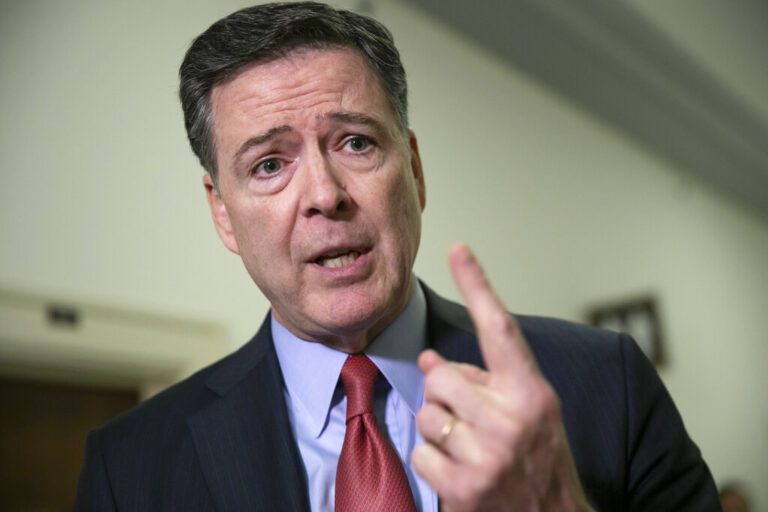Former FBI Director James Comey Faces Potential Charges for Alleged Congressional Testimony Lies
The Department of Justice (DOJ) is reportedly preparing to charge former FBI Director James Comey for allegedly lying during his testimony to Congress nearly five years ago. This investigation is particularly significant as it unfolds in the Eastern District of Virginia, where Comey resides and where recent tensions have emerged between law enforcement and political figures.
Background of the Investigation
Context of Comey’s Testimony
On September 30, 2020, Comey testified before the Senate Judiciary Committee, vehemently denying any unauthorized disclosures of information to the media. His statements will now be scrutinized as the DOJ seeks to determine if he misled Congress. Notably, former FBI Deputy Director Andy McCabe has previously claimed that Comey was aware of his communications with the press, raising critical questions about the veracity of Comey’s testimony.
Key Quotes from the 2020 Testimony
During his testimony, when Senator Ted Cruz pressed Comey on inconsistencies between his statements and those of McCabe, he responded:
- “I stand by the testimony you summarized that I gave in May of 2017.”
This exchange highlights the conflicting narratives and sets the stage for the DOJ’s investigation.
Legal Ramifications
Lying to Congress: The Charge and Statute of Limitations
The alleged crime of lying to Congress carries a five-year statute of limitations, which is set to expire in just six days. This urgency might explain the DOJ’s swift action in seeking potential charges against Comey.
Statements from the DOJ and Related Officials
An investigation into Comey’s claims has reportedly been underway for weeks, with DOJ officials asserting that evidence exists to suggest he lied during his Congressional testimony. Carol Leonig of MSNBC mentioned this potential indictment on “MSNBC Reports”, adding credibility to the unfolding situation.
The Political Landscape
Tensions Between the DOJ and Political Leadership
The political backdrop of this legal pursuit is particularly noteworthy. Reports indicate that former President Trump has expressed frustration towards DOJ officials for not taking action against political opponents. Recently removed U.S. Attorney Erik Siebert was under pressure for his perceived inaction, leading to Trump’s appointment of Lindsey Halligan, his former attorney, to the role.
Trump’s Call for Action
In a public statement on Truth Social, Trump criticized the current state of affairs, demanding investigations and charges against several key political figures, including Comey, Senator Adam Schiff, and New York Attorney General Letitia James:
- “They’re all guilty as hell, but nothing is going to be done.”
This sentiment underscores the significant scrutiny and pressure the DOJ faces amid a volatile political environment.
Implications Moving Forward
The DOJ’s move to potentially charge Comey represents a significant shift in the ongoing battle between political figures and law enforcement. As this situation continues to develop, it raises questions about accountability, the integrity of congressional proceedings, and the intersection of law and politics in contemporary America.
Key Takeaways
- Allegation: James Comey may face charges for allegedly lying during his 2020 Senate testimony.
- Urgency: The statute of limitations is set to expire soon, prompting swift action from the DOJ.
- Political Context: Former President Trump has emphasized the need for accountability among his critics, heightening the stakes.
As these events unfold, the ramifications could extend beyond Comey and touch upon the broader dynamics of justice and political accountability in the United States.
For more information on Comey’s tenure at the FBI and the implications of his testimony, please visit FBI History and Congressional Testimonies.


